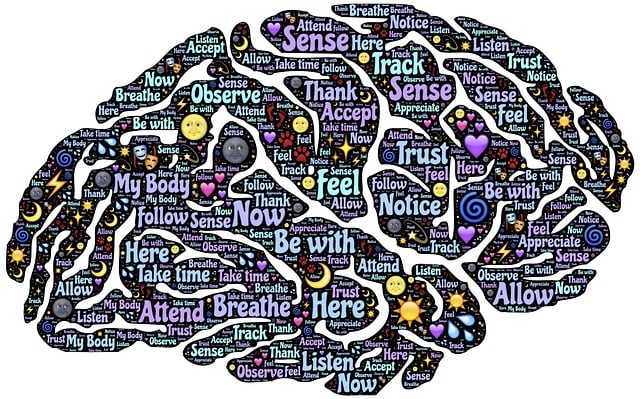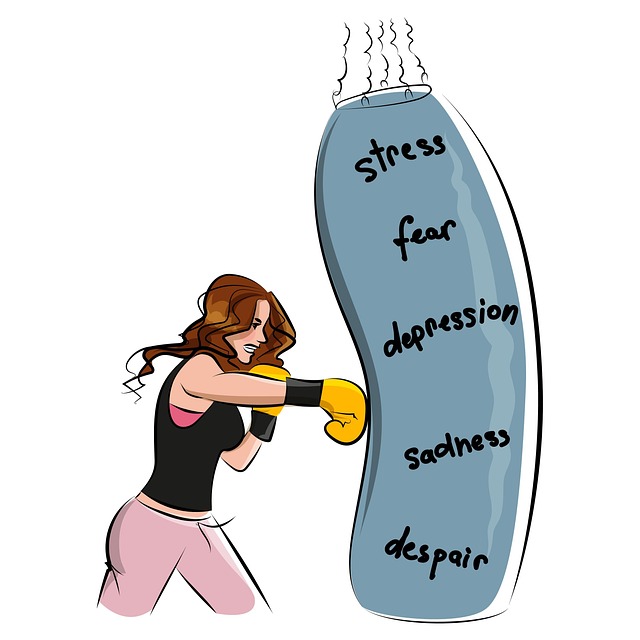Crisis Intervention Teams (CITs) are vital in providing immediate, effective mental health support during crises, de-escalating situations and connecting individuals to long-term care. Specialized CIT training programs focus on empathy, confidence building, emotional intelligence, stress management, and resilience to enhance outcomes for those facing mental health crises, including those seeking Littleton ADD-ADHD Therapy. Integrating techniques from this therapy can improve CIT responses to individuals with ADHD during crises, advocating for better resources and fostering self-care practices for positive mental health outcomes.
In today’s fast-paced world, effective crisis intervention teams (CITs) play a crucial role in providing immediate support for individuals experiencing mental health crises. This article delves into the essential training programs that equip CIT members with the skills to navigate challenging situations. We explore the key components of successful training, highlighting how Littleton ADD-ADHD Therapy offers unique benefits within this context. Understanding CITs and their impact is vital for fostering healthier communities.
- Understanding Crisis Intervention Teams: Role and Importance in Mental Health Support
- Key Components of Effective Crisis Intervention Team Training Programs
- The Impact and Benefits of Littleton ADD-ADHD Therapy within Crisis Intervention Training
Understanding Crisis Intervention Teams: Role and Importance in Mental Health Support

Crisis Intervention Teams (CITs) play a vital role in mental health support, particularly in situations where individuals are experiencing severe emotional distress or crisis. These teams, often comprising trained professionals such as mental health specialists, police officers, and paramedics, are designed to provide immediate and effective assistance. When faced with a mental health crisis, whether it’s a suicidal ideation, a psychotic episode, or acute anxiety, CIT members offer a coordinated response. They aim to de-escalate the situation, ensure safety, and connect the individual with appropriate long-term support.
The presence of CITs can significantly impact positive outcomes in mental health care. By acting swiftly and efficiently, they can prevent escalations and reduce the need for restrictive measures. Moreover, these teams promote a collaborative approach, where self-care practices and mood management strategies are often integrated into the intervention process. With proper training, members gain valuable skills to navigate complex situations, fostering an environment of support that extends beyond the immediate crisis. This holistic approach, including elements from mental wellness podcast series production, ensures individuals receive comprehensive care tailored to their unique needs, reflecting the importance of CITs in modern mental health services, especially in communities like Littleton ADD-ADHD Therapy.
Key Components of Effective Crisis Intervention Team Training Programs

Effective crisis intervention team (CIT) training programs are meticulously crafted to equip healthcare professionals with invaluable skills and knowledge. These programs go beyond basic emergency response protocols, delving into essential components like empathy building strategies and confidence boosting techniques. By fostering a culture of emotional intelligence within medical teams, CIT training enhances their ability to connect with individuals in distress, providing tailored support that addresses unique psychological needs.
Moreover, addressing burnout is paramount, especially for healthcare providers who frequently encounter high-stress situations. Incorporating burnout prevention strategies into CIT training empowers team members with tools to manage stress, maintain resilience, and preserve the highest standards of patient care. Through interactive simulations, role-playing scenarios, and peer-to-peer learning, these programs ensure that crisis intervention teams are not only competent but also confident in their ability to navigate complex emotional landscapes, ultimately enhancing Littleton ADD-ADHD Therapy outcomes for individuals facing mental health crises.
The Impact and Benefits of Littleton ADD-ADHD Therapy within Crisis Intervention Training

Crisis intervention team training programs greatly benefit from incorporating Littleton ADD-ADHD Therapy techniques. This specialized approach recognizes that individuals with Attention Deficit Hyperactivity Disorder (ADHD) often face unique challenges during crises, requiring tailored strategies. By integrating mental health policy analysis and advocacy into training, participants gain insights into advocating for better resources and understanding of ADHD within the context of crisis intervention.
Effective crisis intervention demands a holistic perspective that addresses not just immediate needs but also long-term self-care practices and depression prevention. Littleton ADD-ADHD Therapy encourages strategies to manage symptoms, improve focus, and enhance coping mechanisms. This approach empowers crisis interveners to support individuals with ADHD more effectively, ensuring personalized care and promoting positive mental health outcomes.
Crisis intervention team training programs, like those enhanced by Littleton ADD-ADHD Therapy, play a pivotal role in equipping professionals with the skills to navigate mental health crises effectively. By focusing on key components such as communication, de-escalation techniques, and collaborative problem-solving, these programs ensure that teams are prepared to provide immediate and compassionate support. The impact of such training is profound, fostering more positive outcomes for individuals in crisis and building stronger, more resilient communities.














